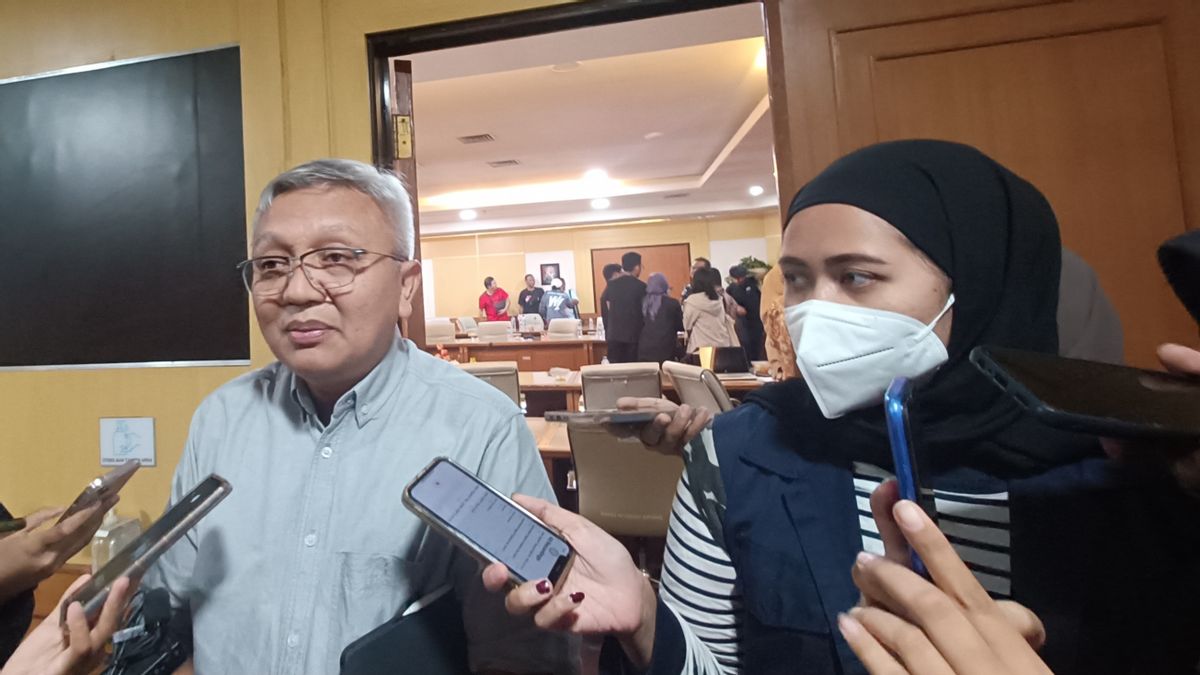JAKARTA - The Ministry of Cooperatives and SMEs (Kemenkop UKM) hopes that policies that require MSME actors in Indonesia to have halal certification starting October 18, 2024 can be postponed.
The reason is, many parties are considered not ready for this policy.
Deputy for SMEs at the Ministry of Cooperatives and SMEs, Hanung Harimba Rachman, said the policy would complicate MSMEs.
He reminded that there would be an impact on MSMEs if the policy was forced to be implemented.
"The Minister (Teten Masduki) yesterday said that we saw that some providers were not ready, I think. So, I hope that the implementation will be postponed or the approach will change. What is forbidden is to use certificates. So, don't complicate MSMEs," said Hanung to reporters at the Ministry of Cooperatives and SMEs office, Jakarta, Friday, February 23.
Hanung also did not believe that all MSMEs could have halal certificates until October 17, 2024.
Given, currently the average product certified is only 200 products per year, while one MSME can have 5 products.
"Even though our MSMEs are tens of millions. It won't be achieved that. It's better than the beginning if I, yes, postpone it or do need to change the approach," he said.
He also encouraged the obligation to start certification from the main points.
For example, if the food comes from meat, the first certified slaughterhouse or the products of the source of the raw materials that are required to be certified first. If it's halal, it will be confirmed that the product is finally halal.
"Our job is not only halal certification. Their feeding is more important. Don't let our MSMEs not be able to eat. This is more important," said Hanung.
Hanung said that the Minister of Cooperatives and SMEs (Menkop UKM) Teten Masduki had several times spoken with other ministries/agencies, including the Ministry of Religion (Kemenag) so that the policy was postponed.
He hopes that there will be follow-up in the future.
"We'll see. I think it's one of the concerns. Food is important. Fields for life are very important because 99 percent of jobs are created by MSMEs," he added.
Previously reported, the government through the Ministry of Religion (Kemenag) required food and beverage traders, both MSMEs and street vendors (PKL) to have halal certification before October 18, 2024.
This provision is contained in Government Regulation Number 39 of 2021 concerning the Implementation of the Halal Product Guarantee Sector.
SEE ALSO:
There are three groups of street vendors who are required to have a halal certificate from the Ministry of Religion's Halal Product Guarantee Agency (BPJPH Kemenag), namely:
1. Street vendors who sell food and beverage products.
2. Street vendors who sell raw materials, additional food and auxiliary materials for food and beverage products.
3. Street vendors who sell slaughter products and slaughter service providers.
The three MSME groups must have a halal label on October 17, 2024.
Traders who have not received a halal certificate exceeding the deadline have the potential to be sanctioned.
The English, Chinese, Japanese, Arabic, and French versions are automatically generated by the AI. So there may still be inaccuracies in translating, please always see Indonesian as our main language. (system supported by DigitalSiber.id)













